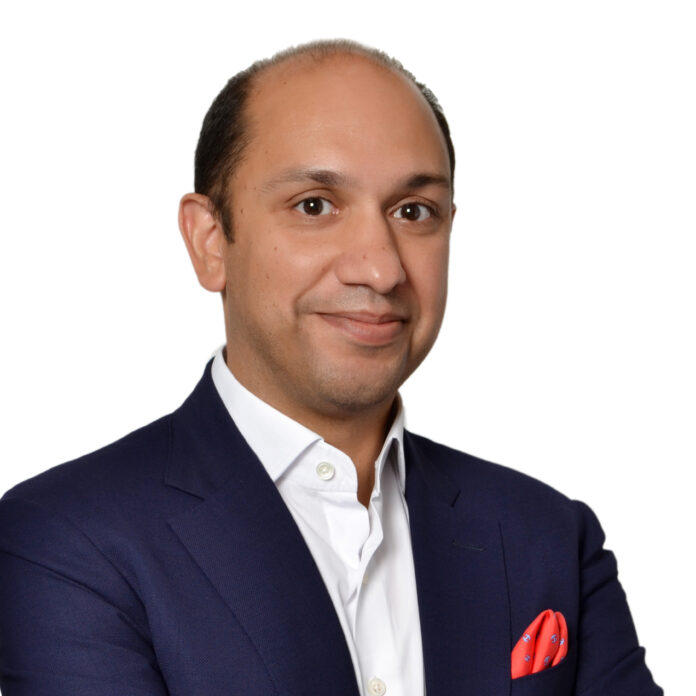1. What are the leading drivers of the growth of Family Office in the Middle East?
We would highlight three leading drivers. 1, Inter-generational transfer of wealth. It is estimated that between $1-2 trillion will be transferred to the next generation over the coming 10 years across the Middle East. This transfer of wealth often needs to be organised in a formal manner to ensure all stakeholders buy into the process. 2, Families are increasingly becoming global in their investment outlook, and are keen to take advantage of different opportunities, including alternative investments which often requires working with specialists who prefer dealing with corporate structures like a Family Office. 3, There is an increasing acceptance amongst families that it is important to have a formal team to help take care of the myriad issues involved with wealth (investments, wealth structuring, succession, tax, legal etc.). The Family Office is proving to be an excellent vehicle to handle all this complexity.
2. What do you define as the top-most benefit of the services provided by a family office?
Every family has its own unique set of circumstances, and thus they have different requirements from a Family Office. Abbey Road is a Multi-Family Office (MFO) and so appeals to families that either are not ready to go it alone or don’t have the desire to bear the costs of staffing a quality Single-Family Office (SFO). From our perspective, we tend to see two key benefits that families look for from their MFO (which we believe also applies equally to a SFO):
Portfolio construction and risk management advice is probably the most common theme we come across, and is an area that Abbey Road specialises in. We spend quality time with the families to assess their personal balance sheets and to understand their overall investment objectives. This then leads to the use of investment strategies across a multitude of providers (banks, asset managers etc) to hopefully populate a best-in-class bespoke portfolio for the families. The MFO is also engaged in monitoring the investment strategies to ensure they are fulfilling their objectives. And we ensure that costs are kept to reasonable levels.
Why is this service important to families? And why is it different to what the banks offer? It is not easy for a family to access unbiased and collaborative advice, as most financial providers work in their own silos. The MFO / SFO is operating on the family’s behalf; it has no agenda (AUM or revenue targets) other than to deliver appropriate and efficient solutions. Another important element is the ability to choose investment solutions from a wide array of providers, and not be dependent on one or two platforms. Financial markets are increasing in complexity and having a team that is solely focused on investment advice is a critical advantage in today’s investing environment. Finally, we also believe that this independent collaborative approach over time leads, if done well, to better performance and results.
The second key benefit families look for from their MFO (and SFO) is the establishment of a robust and sustainable estate and succession planning solution. Similar to portfolio management, families also struggle to put all their lawyers, trustees and bankers together to work on a strategy that considers multi-jurisdictional asset exposure and a rapidly changing tax, legal and regulatory landscape. And the whole process requires time which often is in short supply, especially if the family is busy running a successful business. The MFO or SFO therefore has an important role in ensuring all providers work closely to deliver a cohesive solution to the family.
3. Do the requirements from family offices of regional HNWI’s differ much from those of other regions?
We do not see significant differences in requirements from Family Offices in other regions to what families need in the GCC. As mentioned above, increasingly family wealth is becoming inter-generational and global in its outlook, and so Family Offices across the world are constantly evolving and adapting to the changing global landscape and the needs of each family. The one difference is that in some parts of the world, Family Offices have been around for much longer and so have evolved into more organised entities with established rules of operation and governance. But this gap is being closed rapidly as Family Offices in the region catch up.
4. How is the organisation of the passing of family wealth between generations changing in the region?
The region is increasingly adopting best practices when it comes to the passing of family wealth between generations. The rise of Family Offices in the region is a clear testament to this evolution. Families now better understand the advantages of passing wealth in an organised manner, to ensure it is preserved and grown for future generations. The growth of capital markets in the region is also providing families with more frequent exits (or partial exits) from their business, and this liquidity-event then needs to be appropriately managed, which is also helping to increase learning on wealth preservation and management. The growth of world class financial centres in the region, like the DIFC and ADGM, has also brought high quality talent into the region who specialise in guiding families on these key issues. This growing ecosystem of lawyers, trustees and financial advisors helps to embellish the importance of managing and transferring wealth across generations. And finally, the emergence of initiatives like the DIFC Family Business and Private Wealth Centre reinforces the growing importance of Family Offices and the passing of family wealth between generations in the region.
5. How is technology benefitting the role of the family office in the region?
Technology is enabling Family Offices in many areas. For a start, technology is increasingly being used by Family Offices to help consolidate all their assets onto one reporting system (like for example Bank of New York Mellon’s platform), which then has multiple follow-on benefits in observing performance and conducting financial analysis. Another area where technology is helping Family Offices is in the creation of bespoke monitoring tools which can be used to build frameworks for each family across investment themes (ESG for e.g.), risk management and any governance requirements. A third area is technology in general is enabling Family Offices to access global opportunities directly and connect with each other all over the world, which creates lots of synergies for the families over time. Lastly, with the UAE’s rapid adoption of new technologies (including digital assets), it certainly made it much easier for Family Offices to benefit from the latest technologies and best practices deployed in other major financial centres.




